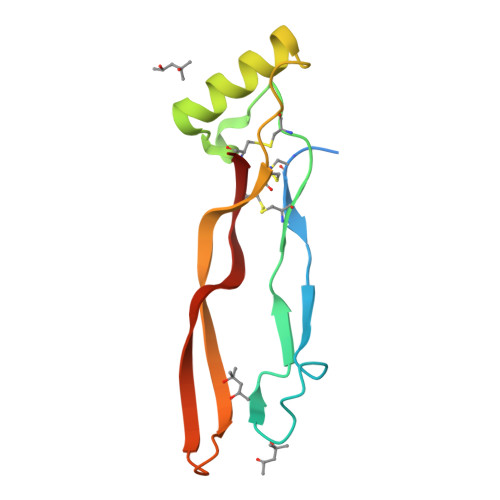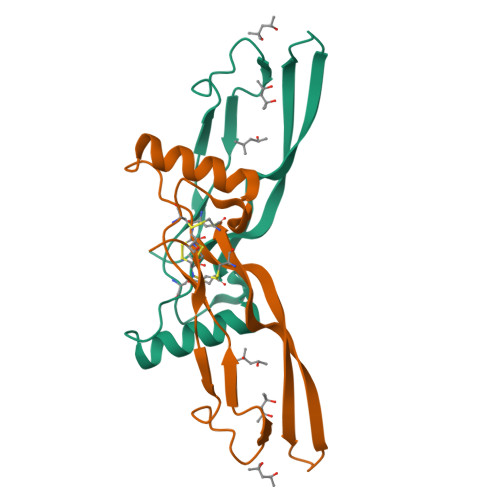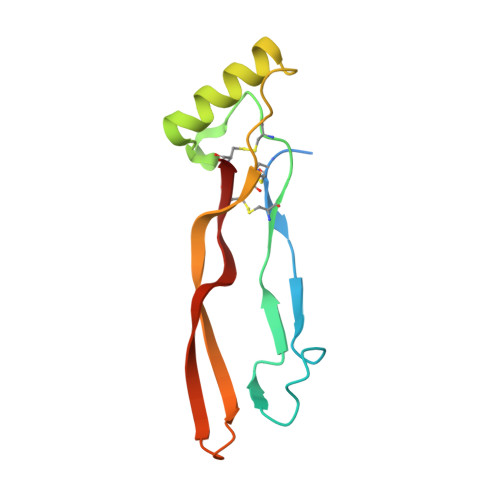A Single Residue of Gdf-5 Defines Binding Specificity to Bmp Receptor Ib.
Nickel, J., Kotzsch, A., Sebald, W., Mueller, T.D.(2005) J Mol Biology 349: 933
- PubMed: 15890363
- DOI: https://doi.org/10.1016/j.jmb.2005.04.015
- Primary Citation of Related Structures:
1WAQ - PubMed Abstract:
Growth and differentiation factor 5 (GDF-5), a member of the TGF-beta superfamily, is involved in many developmental processes, like chondrogenesis and joint formation. Mutations in GDF-5 lead to diseases, e.g. chondrodysplasias like Hunter-Thompson, Grebe and DuPan syndromes and brachydactyly. Similar to other TGF-beta superfamily members, GDF-5 transmits signals through binding to two different types of membrane-bound serine-/threonine-kinase receptors termed type I and type II. In contrast to the large number of ligands, only seven type I and five type II receptors have been identified to date, implicating a limited promiscuity in ligand-receptor interaction. However, in contrast to other members of the TGF-beta superfamily, GDF-5 shows a pronounced specificity in type I receptor interaction in cross-link experiments binding only to BMP receptor IB (BMPR-IB). In mice, deletion of either GDF-5 or BMPR-IB results in a similar phenotype, indicating that GDF-5 signaling is highly dependent on BMPR-IB. Here, we demonstrate by biosensor analysis that GDF-5 also binds to BMP receptor IA (BMPR-IA) but with approximately 12-fold lower affinity. Structural and mutational analyses revealed a single residue of GDF-5, Arg57 located in the pre-helix loop, being solely responsible for the high binding specificity to BMPR-IB. In contrast to wild-type GDF-5, variant GDF-5R57A interacts with BMPR-IA and BMPR-IB with a comparable high binding affinity. These results provide important insights into how receptor-binding specificity is generated at the molecular level and might be useful for the generation of receptor subtype specific activators or inhibitors.
Organizational Affiliation:
Lehrstuhl für Physiologische Chemie II, Theodor-Boveri Institut für Biowissenschaften (Biozentrum) der Universität Würzburg, Am Hubland, D-97074 Würzburg, Germany.

















